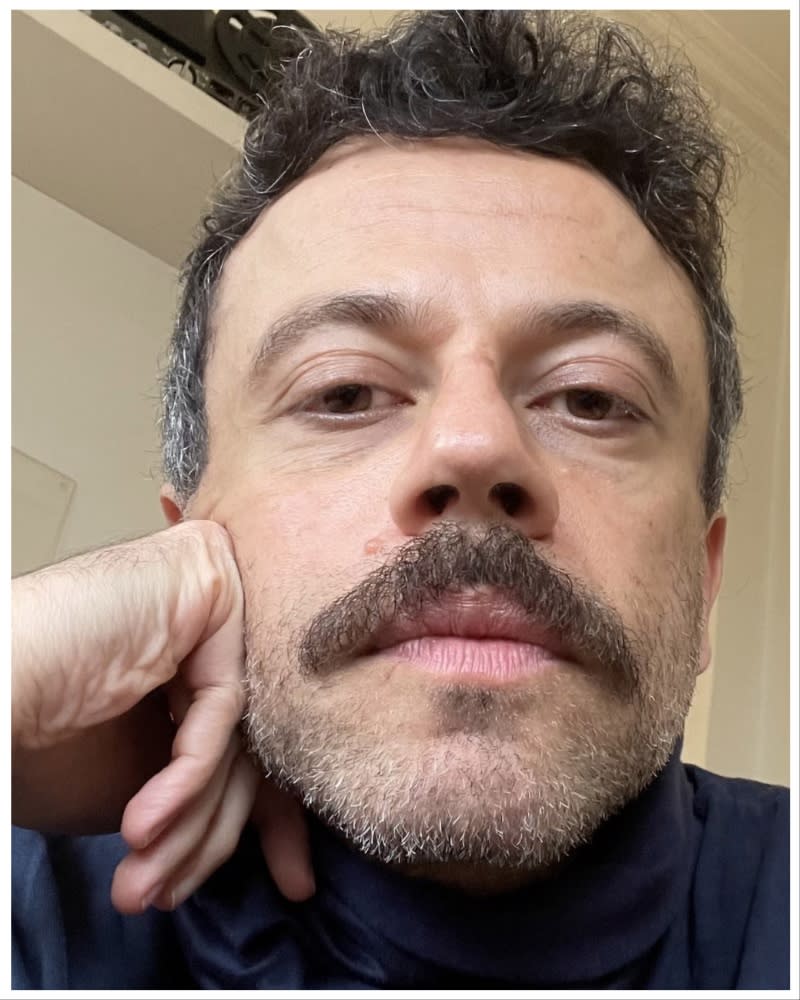Director of Afghan Refugee Story ‘Fremont’ Bet Big on Unknown Actor Anaita Wali Zada
- Oops!Something went wrong.Please try again later.

Although set in a noirish Northern California, “Fremont” – which premiered at Sundance and plays in competition at Karlovy Vary this week – is a refugee story that’s firmly rooted in reality. Director Babak Jalali’s casting of real-life Afghan refugee Anaita Wali Zada, a first-time actor, in the lead role gives some indication of his commitment to authenticity.
The hardboiled script, co-written with Carolina Cavalli, turns on a young woman, Donya, working in a Chinese fortune cookie factory while starved for sleep and wracked with PTSD from her past life working with the U.S. military in Afghanistan. The tight dialogue lends another level of stylized sheen to the film, as does the appearance of two veteran actors in wry performances – Gregg Turkington as a Jack London-obsessed therapist, and Jeremy Allen White, best known for his role as master chef in TV series “The Bear,” as a lovelorn mechanic.
More from Variety
In 'Citizen Saint,' Georgian Director Tinatin Kajrishvili Asks What If God Was One of Us
'Blaga's Lessons' Review: A Victim Turns Venal In a Bitterly Potent Social Thriller From Bulgaria
'Bikechess,' a Dark Comedy About Journalism in Kazakhstan, Wins Karlovy Vary Works in Progress Award
Yet real-life remains at the heart of “Fremont,” where even the community of Afghan refugees living in that East Bay industrial city is based on fact.
That’s no accident, says Jalali – and finding someone like Wali Zada to center the story was no small task.
“The pool of professional Afghan actresses is very small in North America and Europe,” Jalali says. “We did an open casting call through social media and also Afghan community centers in the States and Canada. People reached out from Arizona, Florida, California. Most were second-generation Afghan women in their 20s.”

One of these actors could likely have done a credible job with the role, Jalali says, and their lack of experience was not an issue for him.
“But then Aita sent an email saying, ‘I’ve never acted before, I’m in Maryland currently and I came to America on an evacuation flight, when the Taliban returned.’”
Jalali was intrigued and set up a call.
“Immediately from the first Zoom – there was no reading of the script or anything, just a conversation – I knew she would be perfect. The only problem I could have created was with her English. Although she understood a lot, she wasn’t fluent at that point.”
But after sending Wali Zada the script and running through it with her, he says, “I was convinced I could make it work.”
She inhabited the role of the former translator for the U.S. military in a way no one else could, says the director. “Because of her own back story, because she had just arrived in America – she was 22 at the time, left her mother and her siblings in Afghanistan – she connected to the story. She wasn’t herself a translator, but she connected to the story.”
And Wali Zada’s performance is impressive, Jalali adds. Her real-life persona contrasts sharply with that of her character, Donya, who shows herself to be tough, resourceful and unafraid of confrontations.
Wali Zada’s natural reserve made one scene a challenge, he notes, when she had to yell a rude expression at a well-deserving male living in the apartment complex the refugees share.
“She couldn’t shout,” Jalali says. “She said, ‘I’ve never shouted at anyone in my life.’”
In the end she did it with gusto – and personified the kind of character that Jalali says was his goal in writing “Fremont.”
“Most of the representations of Afghan women in the media focus on the fact that they’re oppressed, they don’t have any agency,” Jalali says. “There’s no denying that what they put up with is horrific – but I also know a lot of very powerful Afghan women.”
Indeed, Donya, who walks into a therapist’s office without an appointment and refuses to leave and later decides to break the rules of Chinese fortune cookie writing, does command center stage.
Wali Zada was also fine with the tight shooting schedule of 20 days and the need to shoot strong takes on the first or second try.
As for the distinctive look and feel of “Fremont” – shot in black and white, using long, locked down shots and an academy aspect ratio, the director says the style arose once he began working with DP Laura Valladao.
“Not a lot goes on in Fremont,” Jalali explains. “It’s a commuter town. San Francisco is a vibrant city, it’s international. And Chinatown’s full of lights and color. I wanted to equalize the two, make them the same, Fremont and San Francisco. Not like this girl’s going to a big city. She’s commuting for a job – she’s not seeing the sights and sounds of San Francisco.”
And, he adds, “Many of the references me and Laura were exchanging were medium format photography. And that kind of lent itself to this ratio and this thing of going black and white.”
The monochrome screen seemed do the job, he says – as did the use of an actual fortune cookie factory with aging machinery the team found close to Fremont.
“They still function – that’s the machinery. It’s not like a mass conveyer belt situation.” And the fortunes in the cookies themselves were also being written there by real people, Jalali says. “Maybe AI will change the messages soon but here the situation was people wrote the messages.”
Filming had to be carefully negotiated to go on during short breaks in production because the “Fremont” crew was in no position to ask the owners to pause the machinery, he says. “It was a balancing act.”
Jalali’s writing process with Cavalli also broke new ground for him – he’s written his previous films “Land” and “Radio Dreams” on his own.
“It was very spontaneous,” Jalali explains, adding Cavalli “has almost a savant way with dialogue.”
Fittingly, Jalali’s “Fremont” is the story of a fighter who needs few words to be understood.
Memento Intl. is handling international sales on the film, which was acquired by Music Box for North America in a deal negotiated by CAA.
Best of Variety
Sign up for Variety’s Newsletter. For the latest news, follow us on Facebook, Twitter, and Instagram.

